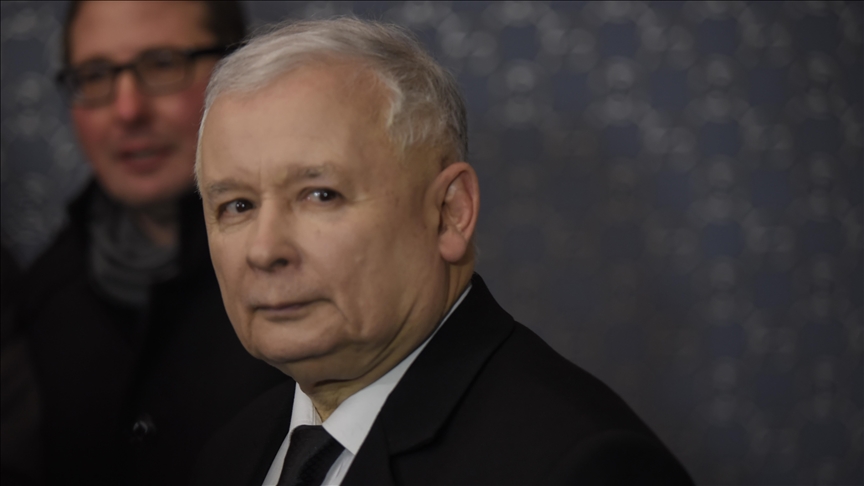Polish opposition leader criticizes government over migrant crisis at German border
Main opposition party joins president in condemning Warsaw’s response to rising migrant flows on western border

WARSAW
Poland’s main opposition leader Jaroslaw Kaczynski on Sunday joined the country’s president in criticizing the Polish government for what they described as a weak response to a growing migrant crisis on the western border with Germany.
Kaczynski, head of the Law and Justice (PiS) party, also blamed Berlin for exacerbating non-EU migrant flows into Poland, calling the situation “unheard of” for countries within the same alliance and the European Union.
Temporary border checks with Germany and Lithuania will begin Monday and last 30 days, with the possibility of extension. The checks will be random, according to Polish authorities.
Meanwhile, self-proclaimed “citizen patrols” have been operating along the German border to block the return of non-EU migrants who previously entered Germany via Poland. The Polish government last week accused these groups, supported by right-wing politicians, of disrupting border operations and spreading false claims that Poland is being “flooded” with migrants. Members of the patrols have attempted to check the identification of people crossing the border.
Polish Border Guards reported that from Jan. 1 to June 29, more than 4,600 illegal entries from Germany were recorded, with the largest group being Ukrainian citizens (40%), followed by migrants from Afghanistan, Somalia, Syria, Georgia and Colombia.
The Interior Ministry said more than 850 migrants who entered Germany illegally from Poland this year had originally crossed into Poland from Belarus. Under EU Dublin regulations, asylum claims by non-EU migrants must be processed in the first EU country of entry.
Since mid-2021, Belarus, with Russian support, has funneled migrants from Africa and the Middle East into Poland, triggering border tensions. Warsaw has responded by building border fences and deploying security forces along the frontier, which is also seen as a strategic flashpoint in any potential Russian attack on Europe, particularly via the Suwalki Gap, a narrow corridor between Poland and Lithuania.
Kaczynski visited Rosowek village near the German border Sunday and defended the patrol groups while criticizing Prime Minister Donald Tusk’s government for its response.
Kaczynski added that his party will propose legislation allowing the interior minister to create a list of countries whose citizens would be barred from entering Poland.
President Andrzej Duda also defended the border patrols Friday, saying: “I am amazed by the violent reactions of Tusk to the fact that such groups are being created – because in my opinion they help the Border Guard to carry out its task.”
Interior Minister Tomasz Siemoniak, however, rejected claims that Poland is being overwhelmed by illegal migrants from Germany.
“The numbers are significantly lower than in 2023 and 2024,” Siemoniak said, accusing political opponents of exploiting the issue for electoral purposes.
His ministry said claims that Germany is transferring migrants to Poland are false.
“We are mostly dealing with foreigners who were staying in Poland (most of them legally) and who then try to enter Germany, but as a result of border control are refused entry to this country,” the statement said.
Tusk dismissed accusations that Poland is facing a western migrant influx and accused right-wing groups of “putting on a show” at the border.
“I have been in contact with the German government, and Chancellor Friedrich Merz personally, to inform them that each case will be investigated, and no one will be allowed in if the reason for handing them over to Poland is questionable,” he said.
Merz acknowledged Poland’s concerns last week but denied claims that Germany is returning asylum seekers who arrived there.
“We have a common problem that we want to solve together,” Merz said.
The border crisis comes as Tusk’s three-party coalition faces internal divisions following the election of a PiS-aligned president and amid a series of recent incidents in Warsaw, including metro failures and fires, which some officials suspect are linked to Russian efforts to destabilize the NATO and EU member.



